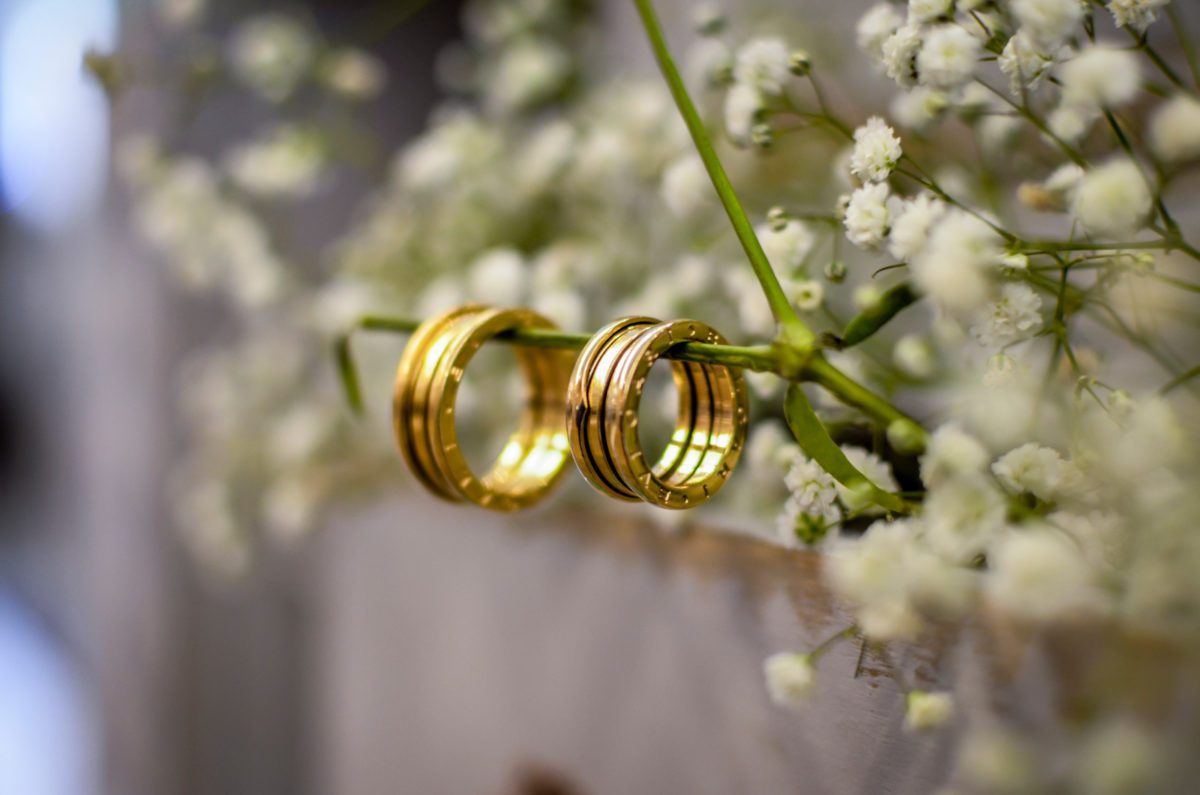I sighed as I closed my video conferencing software after my last pre-marital client of the day. I was saddened by yet another couple whose wedding day dreams were shattered by the pandemic. My heart aches for my clients and all those out there who have had to grieve and adjust their wedding plans about which they were so excited just a few short months ago. These personal losses come on top of all the other losses and adjustments I wrote about in an earlier article, ‘Couplehood in the Time of Pandemic.’ As both a priest and marriage and family therapist, I see many clients for pre-marital counseling referred to me from a variety of clergy. I feel all sides of this painful issue: we clergy cannot officiate marriages, marking the time in the church and before God the way we used to; the couple cannot have all their loved ones gathered safely to affirm and celebrate their relationship; and the community who love the couple cannot be with them in the way and roles they expected.
In the Episcopal Church’s The Celebration and Blessing of a Marriage, the opening greeting states, “The bond and covenant of marriage was established by God in creation, and our Lord Jesus Christ adorned this manner of life by his presence and first miracle at a wedding in Cana of Galilee” (Book of Common Prayer, 423). Jesus loved a party and so do we. Anthropologically speaking, humans need ritual to anchor themselves in time and this is even more keenly felt when we are living in a liminal state, as we are right now. Holy matrimony is one of the sacramental rites that the Episcopal Church uses and relates to Christian hope. So how do we hold this hope and create meaningful ceremonies in this unusual, physically distanced time?
If you are postponing your wedding until next year…
- Go to pre-marital counseling. You have the time and you will not regret it. Prepare-Enrich has facilitators all over the country, including many clergy and professional therapists, and is a solid program to help you prepare and strengthen your relationship. Whether you have known each other since you were born or just met two weeks ago, pre-marital counseling is extremely valuable when facilitated by someone who is trained to help you become aware of you patterns of family of origin, give you tools for communication and conflict resolution, and offer opportunities for insight and discussion.
- Reflect on what the essentials are for your wedding day. Weddings will probably need to be smaller. This article has more about that perspective.
- Do something special on the original wedding date. You may notice you are feeling sad and irritable leading up to the original date. This is part of the grief of not getting to have the special day you hoped for. Acknowledge it and do something meaningful together that day.
If you are getting married this year, but in an alternative way…
- Finish your pre-marital counseling. See #1 above.
- Invite all your friends and family to participate in a VidHug.
- Invite your wedding guests to a Zoom reception and have everyone dress up in a theme or wear their fancy clothes while sharing their favorite dessert in lieu of in-person cake. Or have multiple small in-person physically-distanced gatherings, according to your state’s COVID-19 protocols, and celebrate throughout the year.
- Get married outdoors, with the proper precautions. I know couples who are getting married outdoors with masks but want their pictures without masks. I encourage you to also include some shots with masks because it is the sign of the times. Looking back, you’ll be able to tell your grandchildren all about this extraordinary event in history and what you had to do in the name of love.
If you are a clergy person wondering what to do…
- Refer your couples to a professional therapist for pre-marital counseling. You have enough going on ministering in a parish during the time of pandemic. Sending your couples to a professional counselor will free up your time and energy. Plus, they’ll be able to do a deeper and more thorough job because of their training. Many therapists are now offering video conferencing and are glad to do this with couples getting married. It also gives the couple a person they can turn to when things get rocky in their marriage. Everyone wins!
- Be willing to be more flexible than you may have been before. This might mean getting permission from your Bishop or other ecclesiastic authority to officiate via video conferencing or adapting your liturgy to fit having not as many participants as in the past. The Holy Spirit is moving in the midst of all this turmoil and that means that God is doing something new—maybe even in this wedding. People are getting really creative in trying to make the best of things. The Knot and Brides.com offer some great ideas.
- Acknowledge your own grief around not being able to officiate in the ways you used to. This pandemic time is difficult for all of us and it is easy to see how the couple getting married is disappointed, but you may be as well. Be gentle with yourself and talk to a trusted friend, colleague, or therapist if you or those close to you notice you are out of sorts.
Remember Grace
This is an unprecedented time, and it calls for all the creativity, grace, and love we can muster. What will not change is two people making the commitment to each other, upheld by their community, before God. May all our lives be “a sign of Christ’s love to this sinful and broken world, that unity may overcome estrangement, forgiveness heal guilt, and joy conquer despair” (Book of Common Prayer, 429).
[[author title=”About the Author”]]
Photo by Glauber Torquato



